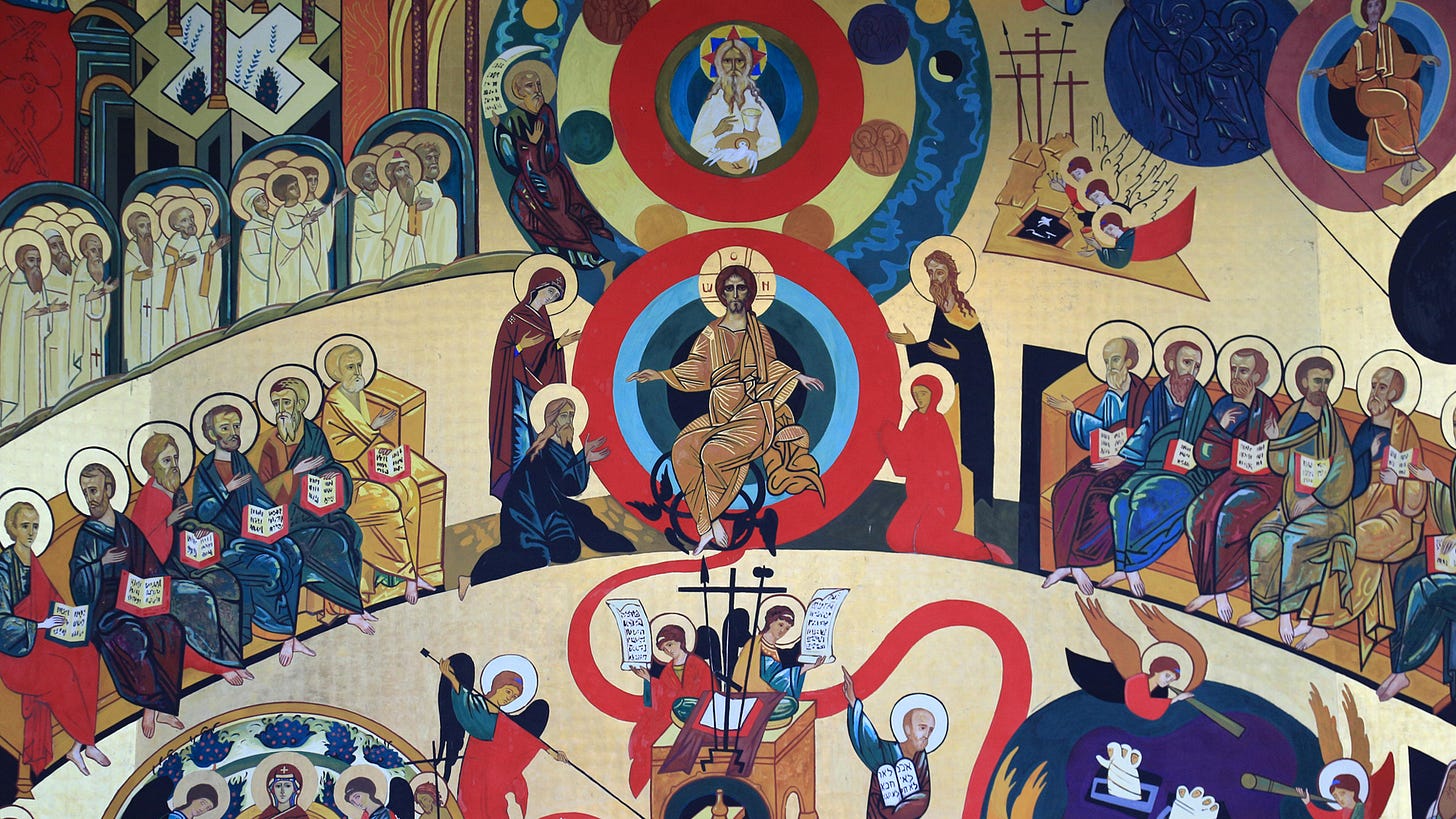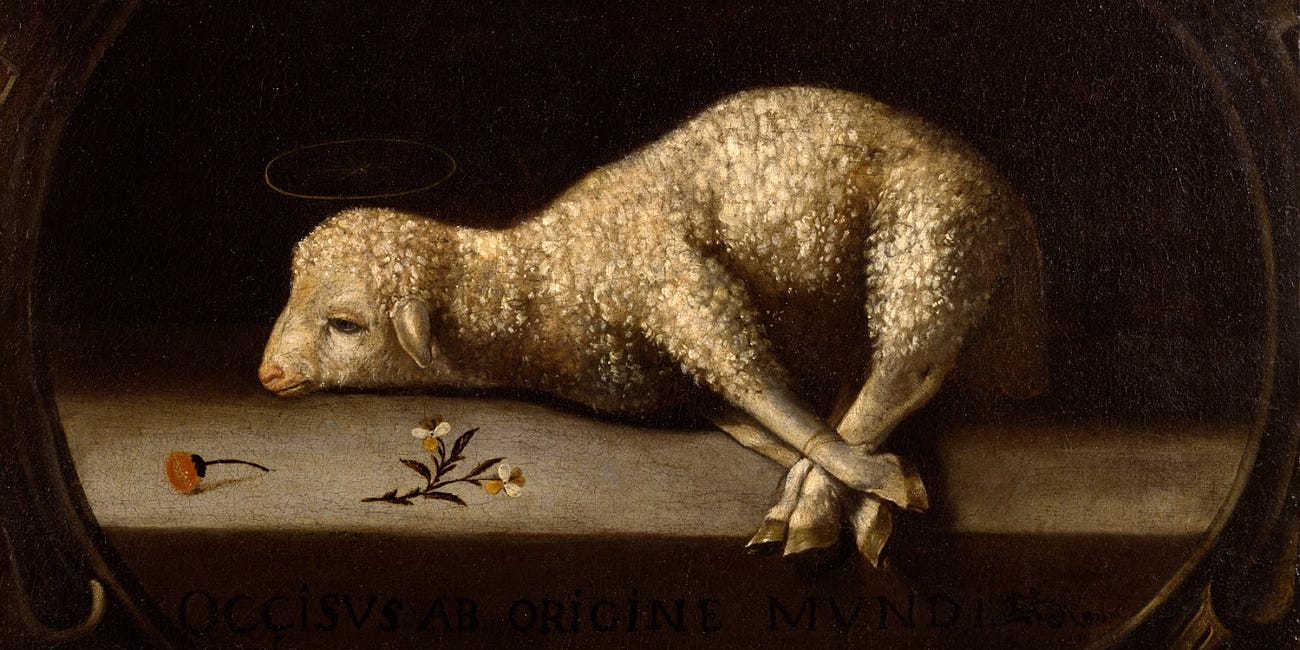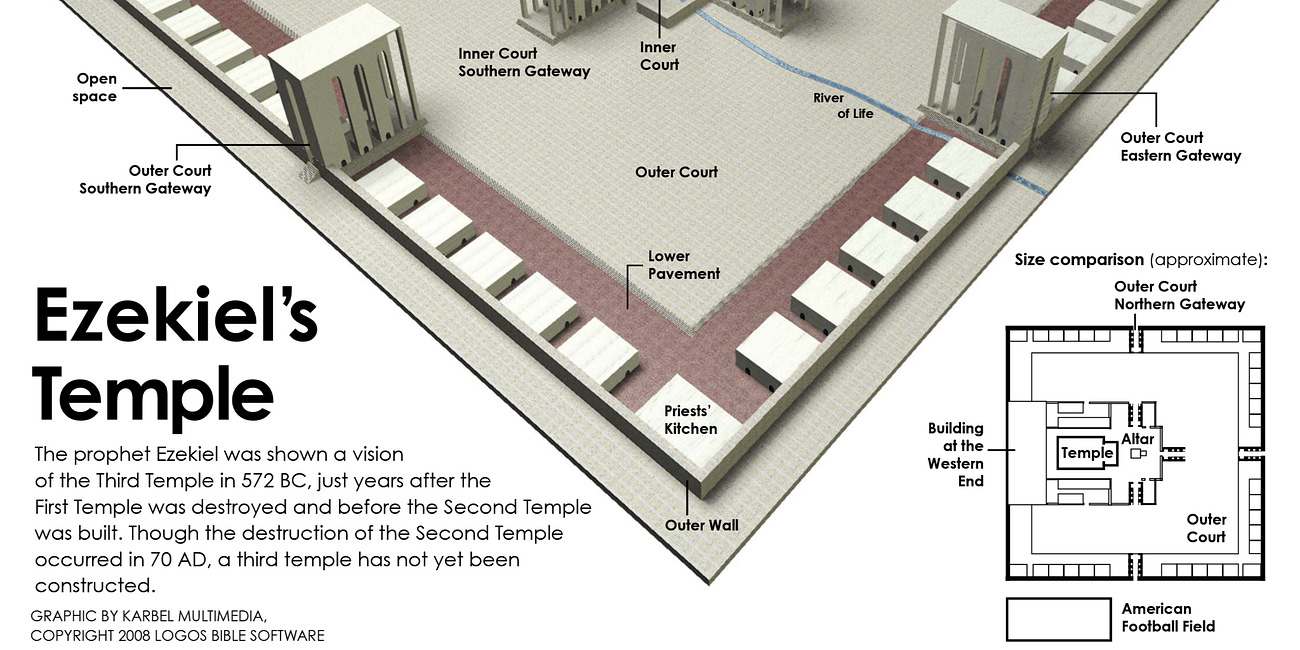A Synthesis of Soteriology and Eschatology
A Study of the Work of Salvation Combined With A Study of the Final Destiny of Humanity and the Earth
This article will be an attempt to synthesize some rather large and complex theological concepts we have explored in previous articles that require reconciliation with one another. I am not aware of any other work done in this area, so I will be relying on my own thinking here and remain open to the input of other readers to refine the ideas I am trying to pull together.
Let’s begin with the idea of inherited sin, which we explored in a recent article I posted:
Inheritance: It’s in the Will
RECEIVING an inheritance means taking ownership of the results of someone else’s work, usually someone that one is related to. This is how Wesley viewed original sin. Our original parents committed acts in direct disobedience to God’s command and we, because of their decision or work, inherit the guilt of their disobedience. It isn’t merely the conseque…
The point of this article was to try and understand what we “inherit” as a consequence of Adam’s original sin. I concluded that the idea of inheriting, or having someone else’s actual “guilt” imputed to us (making Adam’s guilt our own without any actual performance on our part), is nonsense. And yet we clearly inherit serious negative consequences and standing before God, more properly defined as “inherited depravity”. What we inherit through genetic transmission from Adam is a destroyed moral image of God. We also inherit, as members of humanity by judicial action from God, spiritual death in conjunction with a lack of divine resources enabling us to overcome what we inherit genetically through Adam. This leads to every person becoming guilty of their own actual sin, not someone else’s
This dilemma could only be made right by the redeeming work of Jesus Christ, which is in general a well established and little debated point of Christian doctrine. Every human that has ever been born of Adam can only be reconciled to God and reunited with the divine power required to overcome our fallen condition by faith alone in the cross and resurrection. Faith initiates our justification before God leading to the supernatural work of the new birth, by which we are gifted with the indwelling of the Holy Spirit who enables us to be made holy.
Romans 3:21 But now the righteousness of God has been manifested apart from the law, although the Law and the Prophets bear witness to it— 22 the righteousness of God through faith in Jesus Christ for all who believe. For there is no distinction: 23 for all have sinned and fall short of the glory of God, 24 and are justified by his grace as a gift, through the redemption that is in Christ Jesus, 25 whom God put forward as a propitiation by his blood, to be received by faith. This was to show God's righteousness, because in his divine forbearance he had passed over former sins. 26 It was to show his righteousness at the present time, so that he might be just and the justifier of the one who has faith in Jesus.
27 Then what becomes of our boasting? It is excluded. By what kind of law? By a law of works? No, but by the law of faith. 28 For we hold that one is justified by faith apart from works of the law.
At this point it is important to try and understand with some clarity exactly what we inherit positively from faith in Jesus Christ. The classical Wesleyan/Methodist view is that our legal justification and regeneration by faith provides us with the means by which we can be made holy and obtain a righteousness that is our own, making us capable of good works. Here is how Wesley puts it in sermon 85, “On Working Out Our Own Salvation”:
“carry out your own salvation with fear and trembling. It is God who works in you both to want and to actually live out his good purposes.” (Phil. 2.12-13) . . . “it is God who works” and “carry out your own salvation.” . . . 1) first that there is a bedrock truth which should never be far from our active thoughts: “It is God who works in you both to want (to will) and to actually live out (to do) his good purposes.” And 2) second, that the purpose of knowing this is that it should be put into practice by: “carrying out our own salvation with fear and trembling.” And finally, 3) third, that we’re invited to see the connection between the two: “It is God who works in you,” therefore, “carry out your own salvation.” . . . Instead of opposition what we actually find here is harmony, indeed the closest possible connection. The connection jumps out at us in two ways: first, it is God who works therefore human beings can work, and second, it is God who works therefore human beings must work.”
Just like we don’t inherit the guilt of Adam’s actions, we also don’t inherit the actual righteousness that comes from Christ’s actions. Through Adam we inherit inability inevitably leading to our own disobedience and guilt. Through faith in Jesus Christ and regeneration we inherit divine ability providing us the spiritual means by which, over time, we can perfect our own obedience and righteousness before God. This framework is clear and consistent.
For a Wesleyan definition of “imparted righteousness”
John Wesley writes:
“It is nowhere stated in Scripture that Christ’s personal righteousness is imputed to us. Not a text can be found which contains any enunciation of the doctrine.” John Wesley “A Right Conception of Sin” by Richard Taylor, published in 1939.
Wesley further writes in a letter to Elizabeth Harper on March 1, 1774:
“I enclose James Perfect's letter, on purpose that you may talk with him. He has both an honest heart and a good understanding; but you entirely mistake his doctrine. He preaches salvation by faith in the same manner that my brother and I have done; and as Mr. Fletcher (one of the finest writers of the age) has beautifully explained it. None of us talk of being accepted for our works: That is the Calvinist slander. But we all maintain, we are not saved without works; that works are a condition (though not the meritorious cause) of salvation. It is by faith in the righteousness and blood of Christ that we are enabled to do all good works; and it is for the sake of these that all who fear God and work righteousness are accepted of Him. It is far better for our people not to hear Mr. Hawksworth. Calvinism will do them no good.” (Works 12:398-399)
This line of thinking by early Methodism is supported by scriptures such as:
John 5:28-29 Do not marvel at this, for an hour is coming when all who are in the tombs will hear his voice 29 and come out, those who have done good to the resurrection of life, and those who have done evil to the resurrection of judgment.
Romans 2:6-7 He will render to each one according to his works: 7 to those who by patience in well-doing seek for glory and honor and immortality, he will give eternal life; 8 but for those who are self-seeking and do not obey the truth, but obey unrighteousness, there will be wrath and fury.
What makes this position so important, and scary, is the doctrine of the holiness of God. “Strive for peace with everyone, and for the holiness without which no one will see the Lord (Hebrews 12:14).” We wrestled with the implications of this verse in our article:
Saints, Sinners, Outcasts, Happiness and the Afterlife
1 John 2:15 Do not love the world or anything in the world. If anyone loves the world, love for the Father is not in them. 16 For everything in the world—the lust of the flesh, the lust of the eyes, and the pride of life—comes not from the Father but from the world.
In this article we outline the REQUIREMENT of holiness in every believer in order to be made fit for the eternal state, a new heaven and a new earth with the full manifest presence of God on the earth. As Wesley states:
“The righteousness of Christ is, doubtless, necessary for any soul that enters into glory. But so is personal holiness, too, for every child of man.” (sermon number 120 “On the Wedding Garment)
If this doesn’t make you uncomfortable then you aren’t reading it correctly.
Most of us are keenly aware of how far short we fall from the standard of perfect holiness. The above article seeks to explore the possible solutions to the problem of believers who die without perfect holiness before the first resurrection, and how they might be provided, in the economy of God, with the means to eternal life and happiness in spite of that.
It is at this point that I would like to advance this line of thinking by putting forward one other possible future solution to the problem of underdeveloped holiness in believers. I am working from the assumption that the majority of believing humanity will die apart from developing the holiness required for living in the full, open manifest presence of a Holy God without dying or suffering.
Exodus 33:20 But,” he said, “you cannot see my face, for man shall not see me and live.”
The particular solution I would like to put forward is God’s plan for the millennial earthly reign of Jesus Christ as a continuation of human history. I have argued extensively that this is the only correct theology of the future, and that is also clearly Wesleyan. I would further argue that it is the only doctrine that makes sense in light of the perplexing problem of the requirement for perfect holiness, to live in happiness, in the full and open manifestation of God’s powerful, all consuming glory.
The millennium, or the messianic era will consist of an additional 1,000 years of human history under the direct, personal leadership of Jesus Christ with a reconstituted nation of Israel, with resurrected believers on the earth, and with the forces of evil totally bound. It will be a time of unprecedented peace, prosperity, and development without the hindrances that plague our progress in this age.
This is an era long anticipated by both Jewish leaders and by most of the earliest church fathers. They believed, based upon ancient Jewish thinking, that since God created the earth in six days, followed by a day of rest, that he would therefore finish history in six millennial days, followed by a millennial “sabbath day” of rest. The earliest witness to this is from the early church father Papias (70-155AD), who “affirms that he received the sayings of the apostles from those who accompanied them, and he moreover asserts that he heard in person Aristion (an Early Christian Bishop of Smyrna, who allegedly was an eyewitness and disciple of Jesus of Nazareth and a companion of John the Elder) and the presbyter John.” “Amongst these he says that there will be a millennium after the resurrection from the dead, when the personal reign of Christ will be established on this earth.” (fragment of Papias #6)
“Elijah's School of the Prophets taught that the time of man, which started at the Genesis Creation and ends with the Revelation Creation of a New Heavens and New Earth, would last seven thousand years.
AGE OF CREATION (2,000 years) - The first four Onahs make up the first 2000-years: 3925-1925 BC.
AGE OF TORAH (2,000 years) (Old Testament Law) - 1926 BC - 75 AD.
AGE OF GRACE (2,000 years) (New Testament Church Age) - 75-2075 AD.
AGE OF THE KINGDOM (1,000 years) (The Millennium when Jesus Rules on Earth) - It is commonly called the Millennium, 2076-3075 AD. (all above from dsscalendar.org)
For more early church father citations on this concept see this article:
During this time, the Messianic Era that is, both the book of Ezekiel and Revelation instruct us there will be a tree located at the center of the newly formed millennial government that will be for “the healing (repair) of the nations” (Ez. 47:12; Rev. 21:2). Under the governmental and religious leadership of Jesus Christ himself, along with untold resurrected saints and angels no longer hidden from plain sight, the believing people of the nations will be fully repaired unto perfect holiness, before God the Father makes his home on the earth and puts his full presence on display for the eternal state.
We are encouraged by the Apostle Paul that all those who die “in Christ” will be resurrected for this time of final preparation:
1 Thessalonians 4:13 But we do not want you to be uninformed, brothers, about those who are asleep, that you may not grieve as others do who have no hope. 14 For since we believe that Jesus died and rose again, even so, through Jesus, God will bring with him those who have fallen asleep. 15 For this we declare to you by a word from the Lord, that we who are alive, who are left until the coming of the Lord, will not precede those who have fallen asleep. 16 For the Lord himself will descend from heaven with a cry of command, with the voice of an archangel, and with the sound of the trumpet of God. And the dead in Christ will rise first. 17 Then we who are alive, who are left, will be caught up together with them in the clouds to meet the Lord in the air, and so we will always be with the Lord. 18 Therefore encourage one another with these words.
This complete paradigm should not cause anyone who is “in Christ” to worry about their future salvation. God has an amazing plan to provide for our holiness, which will lead to complete happiness in the full manifestation of His glory. At the same time, it should deeply motivate us to take more seriously the warning issued by the Apostle Paul in his letter to the Philippians:
2:12 Therefore, my beloved, as you have always obeyed, so now, not only as in my presence but much more in my absence, work out your own salvation with fear and trembling, 13 for it is God who works in you, both to will and to work for his good pleasure.
The more work we do here and now, the more joy and happiness we will experience then and there! Based upon the work we do in this life developing in holiness, while life will be good for everyone in the kingdom age, it will be better for some than for others. And we are all going to care deeply, probably more than we can understand, about the eternal consequences of the work we put in toward holiness here and now.









